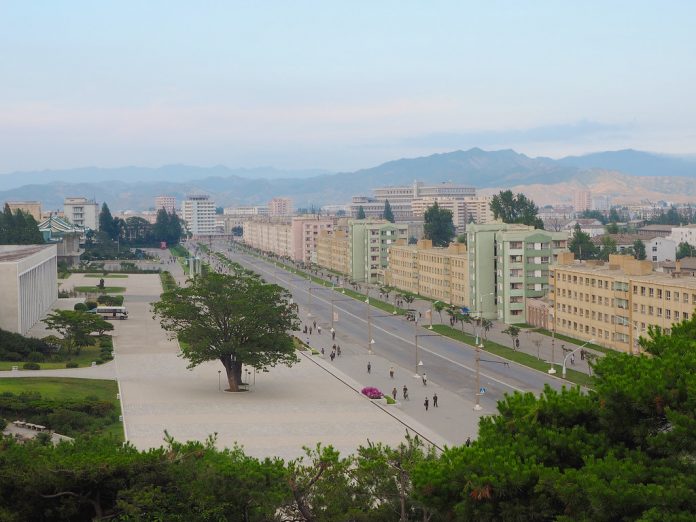The prosecutors’ office in South Hamgyong Province is investigating corruption at the Hamhung Knitwear Factory, Daily NK has learned.
“The Hamhung Knitwear Factory has been under investigation by the provincial prosecutors since the end of September. The factory management is under the microscope for taking bribes from ‘8.3 workers,’” a source in South Hamgyong Province told Daily NK on Wednesday.
The term “8.3 worker” refers to employees who are not required to come in to work in exchange for a monthly payment to their workplace. But those workers are still expected to participate in organizational events, including lectures and self-criticism sections.
Since 2015, the North Korean government has ordered the elimination of 8.3 work arrangements and carried out sweeping crackdowns on the practice. Nevertheless, many companies have continued to quietly take money from employees who want to spend their time elsewhere. Those funds help companies stay in business and complete tasks assigned by the state.
The government continues to assign tasks to companies and expect them to come up with their own funds, even as the government itself is unable to pay workers’ wages or distribute their rations. That leaves companies with no choice, the source said, but to keep taking payments from 8.3 workers.
An 8.3 work arrangement appears to be behind the prosecutors’ investigation of the Hamhung Knitwear Factory. An individual surnamed Kim was nabbed by prosecutors early in September after several years of making a living by cooking “ice” (crystal meth) — even though he had been nominally employed at the factory since August 2018.
While being questioned by prosecutors following his arrest, Kim confessed that he had been paying off the Hamhung Knitwear Factory under an 8.3 work arrangement and even spilled the names of people at the factory who were implicated in the arrangement, according to the source.
An even bigger problem for the North Korean authorities was that the company had allowed Kim to skip all the organizational events — not only self-criticism sessions but also the entire schedule of lectures and workshops — in exchange for contributions of KPW 400,000 each month.
In the course of the interrogation, Kim divulged that he had been paying an extra USD 200 a month in bribes to the party secretary at the factory to get out of his organizational obligations. That is what prompted the provincial prosecutors’ office to initiate a direct investigation into the Hamhung Knitwear Factory, the source explained.
“In this investigation, the provincial prosecutors’ office is looking into bribes accepted by the party officials and bureaucrats who are supposed to be providing party members and workers with education that reinforces the ideology of the Workers’ Party. The investigation is particularly focused on whether party members were excused from party activities,” the source said.
“Since Sept. 25, prosecutors have been [reviewing] the daily logs for mid-level and high-level managers in all departments, beginning with the factory’s party secretary, and carrying out one-on-one interviews with employees. Officials at the rank of section chief and above are trembling with fear that they’ll be caught in this rigorous investigation,” the source added.
The prosecutors who have been assigned to the investigation of the Hamhung Knitwear Factory have reportedly been cross-checking the factory’s nominal list of employees with the people who actually show up for work to see whether there are any other 8.3 workers at the factory.
“Once this investigation is over, the factory’s party secretary won’t be able to wiggle out of severe punishment,” the source said, adding, “The incident has put 8.3 work arrangements and corruption by factory management back in the spotlight, which will likely lead the prosecutors to investigate factories and companies throughout the province.”
Please direct any comments or questions about this article to [email protected].


